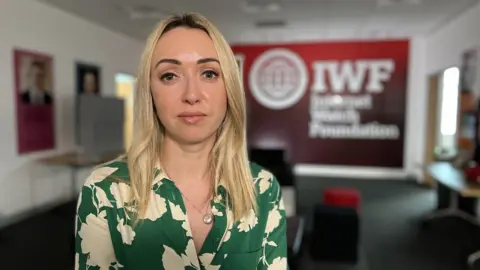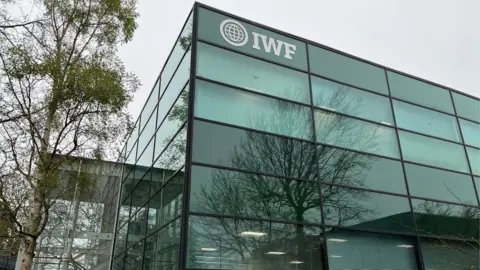Cambridge-based Internet Watch Foundation warns of rise in remote abuse
Investigators warn that 99% of child sexual abuse imagery found features girls - up from 65% a decade ago.
The Internet Watch Foundation (IWF) finds, flags, and removes images and videos of child sexual abuse from the web.
Last year the Cambridge-based charity's analysts uncovered illegal content on 252,000 web pages, the highest number since it began.
The charity's annual report said 70% of victims were aged between 11 and 13.
Where boys were included in the material, it tended to be of a more severe category, the IWF said.
The material was found to be predominantly self-generated and usually recorded at home using a phone or webcam.

Emma Hardy, from the charity's senior leadership team, said: "Since the pandemic there has been a near four-fold increase in the amount of content where offenders are accessing children remotely.
"That often happens when children are in bedrooms alone and have an internet-enabled device with a camera built in."
The charity said the increase could be due to older children exploring new technologies and spending more time online.
"Parents need to talk as a family because we know that's the best way to keep children safe," Ms Hardy said.
 Internet Watch Foundation
Internet Watch FoundationThe National Crime Agency (NCA) estimates as many as 850,000 people in the UK pose a sexual threat to children.
A spokesperson for the NCA said offenders were increasingly turning to social media platforms to abuse children, using manipulation, threats and "sextortion", in which victims are sexually coerced remotely.
The Online Safety Bill, which received its second reading last week, aims to tackle the spread of child sexual abuse material by regulating some internet services.
But the IWF and other charities have expressed concerns the legislation will not go far enough.
Andy Burrows from the NSPCC said the bill "must be strengthened to give Ofcom the powers to proactively tackle abuse in private messaging".
"It should also prevent offenders from using social networks to signpost to child abuse content on third party sites," he said.
Home Secretary Priti Patel said she was "determined" to "ensure that perpetrators are brought to justice".
"This report from the Internet Watch Foundation will help our law enforcement agencies understand the changing nature of online child abuse as the lines are increasingly blurred between children's physical and digital lives," she said.
"The government's Online Safety Bill will ensure that technology companies are held accountable for keeping children safe online and we will impose a powerful range of sanctions if they fail to do so."

Find BBC News: East of England on Facebook, Instagram and Twitter. If you have a story suggestion email [email protected]
